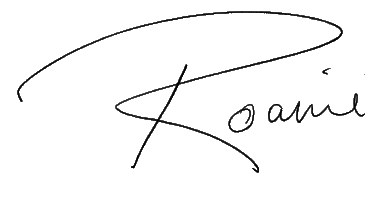A letter from Access Copyright’s CEO
Thursday, January 17, 2019
Fair-dealing fall-out: the real-life implications of unintended consequences
I’ve spent a large part of my professional life at Access Copyright. I’m often asked by publishers and creators what keeps me going, especially through the challenging times.
The answer is simple: it is my privilege to work on behalf of Canadian creators and publishers to make sure their rights and the value of their work are both recognized. In the last few years, workplace gurus have talked a lot about the importance of alignment between your personal values and your work. I feel like I’ve been blessed; this is meaningful work and I cannot imagine doing anything else.
Late last year, I testified before the Standing Committee on Canadian Heritage for the Study of Remuneration Models for Artists and Creative Industries. I had the honour of being accompanied by one of Canada’s most prolific Young Adult writers, Sylvia McNicoll. Please take a moment to hear her opening statement before the Committee.
During the question period, one of the MPs asked if there might be a middle ground, a way to protect writers and ensure learners in the public sector have access to high quality materials, given limits to funding.
It’s a question I’ve heard (and answered) many times. Sylvia’s response below truly gets to the heart of the issue.
Ms. Sylvia McNicoll:
I think it's just obvious that immediately tariffs have to be enforced [1]. That was never a compromise, to say that you could have an educational exemption and not pay anything. That's full-handed giving them free....
This has been going on for close to five years. Different schools opted out at different times. They believe now that they are entitled. It will be very difficult. They have no knowledge of ever paying for photocopying or for digitally reproducing materials.
We need to get the fines, the tariffs, in place, and then we need to rein in this exemption.
Ms. Roanie Levy:
If I could add something, the system of collective licensing was created precisely so that the entire book doesn't have to be bought all the time. It provides that means of accessing without having to pay the full price of all books all the time for every student.
It's also important to keep in mind—because I think that because of all of the noise we hear about this and all of the efforts that are made to evade having to pay—that we have the sense we're talking about incredible sums. In the elementary and secondary sector, we're talking about $2.41 per student per year. Then they could do the copying of their chapters and their 10% to their heart's content. It's $2.41 per child per year, and the ministers are still not paying.
In post-secondary, at most we are talking about $26 per student per year. It's the price of a pizza. In college, we are talking about $10 per student per year. We're not talking about sums that would bankrupt anyone, that would add any true additional burden on students whatsoever.
Ms. Sylvia McNicoll:
May I add that while it's just a pizza for them, it's my mortgage, my groceries, and it's my car payment. Right now, it's my dental bill.
Canadian creators and publishers have suffered under the education sector’s copying policies and practices. I believe politicians and policymakers in Ottawa understand the unintended, negative consequences the 2012 changes to the Copyright Act have brought about.
Now, as they prepare their report and recommendations, I hope they’ll remember Sylvia – and the thousands of writers and publishers who are in the same predicament – looking to make their next mortgage payment, book a dentist appointment or pay for groceries.
It doesn’t have to be this way.
The licence costs are minimal, but the resulting royalty payments make a significant and meaningful difference to Canada’s creators and publishers.
Sincerely,

Roanie Levy
President & CEO
Access Copyright
[1] Since 2012, educational institutions outside of Quebec have refused to pay royalties under tariffs certified by the Copyright Board of Canada. This action has deprived creators and publishers of an important source of income. For example, under the current elementary and secondary schools tariff, this non-payment results in an annual loss of $9 million in royalties for the copying of published works by K-12 schools.